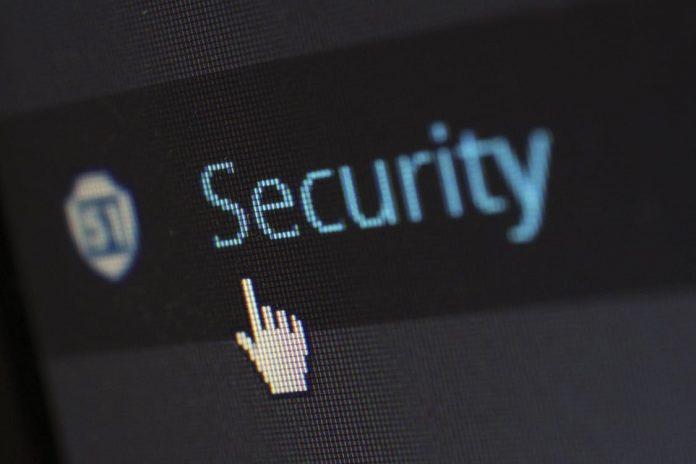You may not realize it, but surfing certain sites or sharing all your info on social media can get you in trouble. From the theft of your bank details to the theft of your identity, the consequences of unprotected browsing can be very serious. Here’s how to avoid the worst.
However, the question is, are they safe? Can you get hacked whenever you activate these applications? Well, if you are a geek and want to explore things on your own as you learn, then the best thing is to download Surfshark trial and test it yourself.
- Use established antivirus software:
It is very vital to install well-known anti-virus software on your phone as well as computer, whether the device is connected to the net or not. It is the best way to avert online fraud and protect your devices from damage.
Antivirus also prevents any intrusion into your systems by a third party. This software helps you to identify the weak points of a phone/computer and to strengthen the entrance points.
When you install antivirus software, the data which you have stored on your computer or phone device will remain secure and unapproachable to hackers.
- Protect yourself against identity theft:
Online identity theft is one of the most recurring problems on the web.
Hackers collect a lot of information about a person to be able to use it dishonestly. For example, as soon as a hacker steals someone’s identity, they can access their bank accounts and withdraw as much money as possible before the victim even realizes it.
To protect yourself, you need to be careful about what information you give out about yourself online.
You must not provide this information on any website:
– Your postal code
– The first line of your address
– Your mother’s maiden name
– Your bank details
– Your SSN
– Other personal info of similar kind
- Complexify your passwords:
If you want to make it tougher or impossible for hackers to crack your passcodes, create original and tough passwords for all your accounts on the internet. These passwords must be difficult or impossible to guess. So, avoid including your birthday, your nickname at your job or school, the name of your pet, or other such combinations that are easy to remember.
At first, remembering your passwords may be challenging. Thankfully, there are various other options rather than keeping them on your computer or phone, which is not quite safe. For instance, you can use password managers to protect thousands of unique and difficult to guess passwords just for you.
If needed, these password manager applications can also generate some random passwords for you. There are several password management applications on the internet, you can use any of them, as there are even free ones.
Otherwise, you can keep a small notebook in which you write down all your passcodes to find them easily. Just remember not to show them to anyone and keep in a safe place in general.
- Erase your cookies:
To store your information about your browsing history, websites use cookies. These small files allow the sites you access to analyze your online behavior. So, they can make better business proposals for you. However, this means that these websites may sell such info to a third party. You should therefore always keep some control over the storage of your cookies.
Not all cookies are inherently bad. However, it is important to change your settings slightly. Thus, you will be alerted if a cookie is automatically installed on your computer or phone. And it’s advisable to erase them from your device regularly.
- Use a VPN to browse anonymously:
VPNs are one of the best ways to browse anonymously online. These networks allow Internet users to connect through another server. This connection is then encrypted by the VPN provider.
By using a VPN, it becomes extremely difficult for hackers and spammers to infiltrate to obtain data about a person. Even if they infiltrate, these hackers cannot read the data sent anyway since it is encrypted.
Additionally, the VPN hides the user’s IP address and gives them a different one once they reconnect to the server. In this way, a VPN can prevent sites from tracking your real IP address and therefore your location and browsing habits.
- Disable the GPS on your phone:
Most applications (and particularly those on social networks) use geo-location to offer their users nearby businesses and services.
However, this feature is not without dangers: it allows malicious people to know the places you frequent. To avoid revealing your location, turn off your GPS.
- Only use HTTPS links:
In the navigation bar, sites that mention HTTP or any other derivation are generally not secure.
Possibly created by a cybercriminal or hacker, this site makes it easy to read communications between the user and the website. Thus, hackers can collect sensitive data about users on such sites.
By visiting HTTPS sites (the S stands for Secure), you can be sure that you are following the basic security requirements.
- Make sure your social media accounts are private:
To limit your sensitive data on the web, set your Facebook, Instagram, Twitter, or Snapchat accounts to private mode.
A profile with information, photos, and videos in public mode remains vulnerable to fraud, theft, and invasion of privacy. For example, posting vacation photos in real-time implies that your apartment is empty. Therefore, you expose yourself to a huge risk of burglary. Remember to change your settings to stay low.
3 bonus tips to protect your privacy online:
- If you use a computer that is not yours (at the café, at school, at work, etc.) log out of all your accounts to prevent other people from accessing them. You may also delete your browsing history.
- Beware of spam emails. Sometimes they may contain malware links that aim to access your private information. If an email is sent by a person, you can look them up on Nuwber. So, you can make sure if that unknown person is genuine or not before sharing your personal information or data.
- Use public Wi-Fi and hotspots with caution. Indeed, these networks do not have any means of encryption to prevent the reading of the data that you communicate. If you must use public Wi-Fi, be sure to use a VPN when connecting.
Other Technical Reviews:- Reviews












